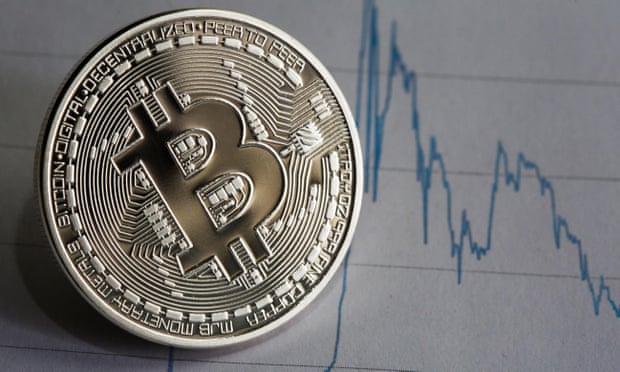A top European Central Bank policymaker has joined calls for a global clampdown on virtual currencies such as bitcoin because of their threat to financial stability.
Yves Mersch, a member of the ECB’s executive board, said the central bank shared the views voiced by Agustín Carstens, the head of the Bank for International Settlements, who on Monday condemned bitcoin as “a combination of a bubble, a Ponzi scheme and an environmental disaster”.
“We at the ECB are fully in line with his views and we have similar worries,” he told Bloomberg TV.
Later, when Mersch spoke at the Official Monetary and Financial Institutions Forum in London, he called for “global answers” to “safeguard the integrity of financial sector services”, adding: “Resolute ring-fencing measures might be needed.”
Q&AWhat is bitcoin?
Show

Bitcoin is a 'cryptocurrency' – a decentralised tradeable digital asset. Invented in 2008, you store your bitcoins in a digital wallet, and transactions are stored in a public ledger known as the bitcoin blockchain, which prevents the digital currency being double-spent.
Cryptocurrencies can be used to send transactions between two parties via the use of private and public keys. These transfers can be done with minimal processing cost, allowing users to avoid the fees charged by traditional financial institutions - as well as the oversight and regulation that entails. The lack of any central authority oversight is one of the attractions.
This means it has attracted a range of backers, from libertarian monetarists who enjoy the idea of a currency with no inflation and no central bank, to drug dealers who like the fact that it is hard (but not impossible) to trace a bitcoin transaction back to a physical person.
The exchange rate has been volatile, with some deeming it a risky investment. In January 2021 the UK's Financial Conduct Authority warned consumers they should be prepared to lose all their money if they invest in schemes promising high returns from digital currencies such as bitcoin.
In practice it has been far more important for the dark economy than it has for most legitimate uses. In November 2021 it hit a record high of more than $68,000, as a growing number of investors backed it as an alternative to other assets during the Covid crisis.
Bitcoin has been criticised for the vast energy reserves and associated carbon footprint of the system. New bitcoins are created by “mining” coins, which is done by using computers to carry out complex calculations. The more bitcoins that have been "mined", the longer it takes to mine new coin, and the more electricity is used in the process.
He said bitcoin was “far inferior to existing payment options” because it was slow and expensive. Bitcoin transactions can easily take several hours to process. “At these speeds, if you bought a bunch of tulips with bitcoin they may well have wilted by the time the transaction was confirmed.”
He ended his speech on a more positive note. “Virtual currencies are not money, nor will they be for the foreseeable future,” he said. “But just because the initial euphoria and hype subsequently fade, it does not mean that the innovation is without virtue, even if early market leaders may not last the distance.”
Bitcoin allows people to bypass banks and traditional payment methods to pay for goods and services. The price rose 12% to $8,498 on Thursday. It has traded wildly in recent weeks, having started the year at $13,880, with investors fretting about potential intervention by regulators.
Bitcoin surged 900% last year, making it the best-performing asset of 2017, and hit a peak of almost $20,000 before Christmas.
Goldman Sachs’ global head of investment research, Steve Strongin, also warned this week that most, if not all, of today’s digital currencies were unlikely to survive in their current form. “The high correlation between the different cryptocurrencies worries me,” he said. “Because of the lack of intrinsic value, the currencies that don’t survive will most likely trade to zero.”
He said digital coins had slow transaction times, security challenges and high maintenance costs, and added that the introduction of regulated bitcoin futures on a Chicago exchange had failed to address such concerns.
“Are any of today’s cryptocurrencies going to be an Amazon or a Google, or will they end up like many of the now-defunct search engines? Just because we are in a speculative bubble does not mean current prices can’t increase for a handful of survivors. At the same time, it probably does mean that most, if not all, will never see their recent peaks again.”
Strongin sounded more positive about the blockchain technology that underlies digital currencies, saying it could help improve financial ledgers (a complete record of financial transactions). But he also cautioned that current technology did not offer the speed required for market transactions.

Comments (…)
Sign in or create your Guardian account to join the discussion